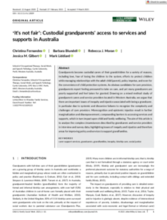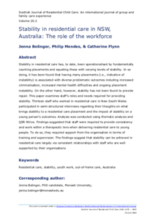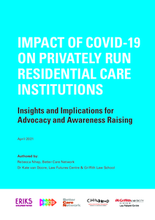

Displaying 101 - 110 of 677
The Ngulluk Koolunga Ngulluk Koort (Our Children Our Heart) project conducted extensive Elder and community consultation to develop principles and practice recommendations for child protection governance in Western Australia. The authors of this paper explore these principles and practice recommendations and highlight the need for culturally safe community consultation and governance with a focus on repairing damage incurred by the Aboriginal and Torres Strait Islander community from past child protection policies.
"A steady stream of men have fled Afghanistan for Australia," says this article from SBS News, "but despite being recognised as refugees and granted protection, they have since faced never-ending visa delays for their wives and children to be able to join them. Some have now been waiting, alone, for more than 10 years."
A systematic review was conducted to examine the effectiveness of interventions and practice models for improving health and psychosocial outcomes of young people in residential care and to identify relevant knowledge gaps.
This article reports on how "Aboriginal children are still being removed from their families and culture at disproportionately high rates."
This study explores issues on post-adoption services in intercountry adoptions based on the perspectives of adoption professionals from Taiwan and Australia.
Drawing on a mixed method study of grandparent carers and service providers located in Western Australia, the authors of this article argue that there are important issues of inequity and injustice associated with being a grandcarer, in particular due to systemic and discursive failures to recognize the complexity and challenges of care provision.
Stability in residential care has, to date, been operationalised by fundamentally counting placements and equating these with varying levels of stability. In so doing, it has been found that having many placements (i.e., indicative of instability) is associated with diverse problematic outcomes including increased criminalisation, increased mental health difficulties and ongoing placement instability. On the other hand, however, stability has not been found to provide repair. This paper examines staff’s roles and needs required for providing stability.
This study explores the effect of COVID-19 on a small number of privately run and funded residential care institutions by conducting a qualitative research study comprising 21 semi-structured interviews across seven focus countries.
In this How We Care series webinar, Family for Every Child presented the programming of three CSOs on how they are supporting kin carers and the vulnerable children in their care, in their respective regions.
An Australian research project explored the experience and support needs of young kinship carers and children in their care through analysis of census data and in‐depth interviews with young kinship carers and children/young people. This article describes the views of 16 young people.



